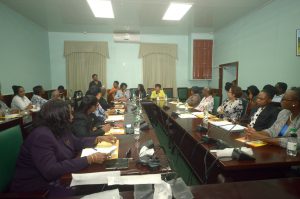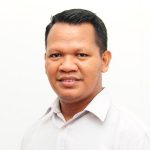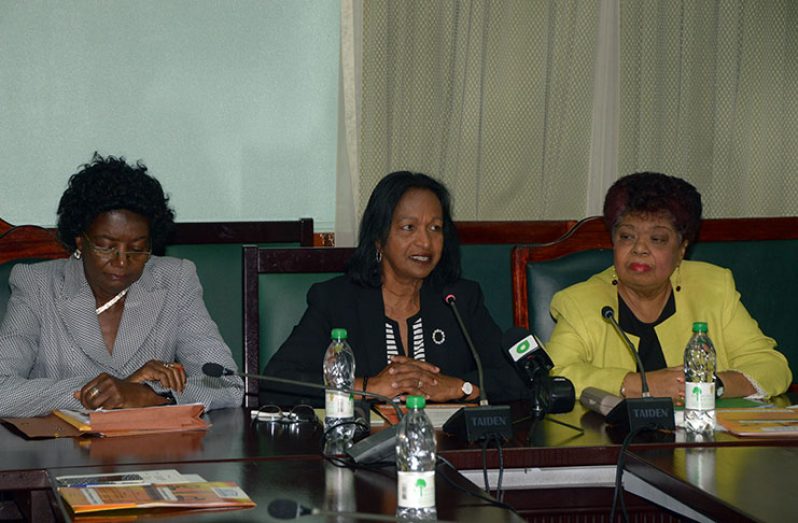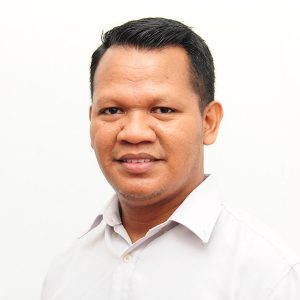– so as to help with crafting of sound gender-related legislations
THE acquisition of skills by Members of Parliament(MPs) to address gender-related issues, and to be able to review all relevant legislations, was one of several challenges brought to the fore on Thursday at a women and gender affairs workshop at the National Assembly.
Secretary-General of the United Nations Educational, Scientific, and Cultural Organisation (UNESCO) National Commission, Patrice La Fleur told several MPs in attendance at the opening of the workshop that the event was an “important step” in involving policymakers at the level of Parliament to engage in discussion on gender equality.
The workshop, which was organised by UNESCO in conjunction with the Women and Gender Affairs Commission (WGEC), saw among MPs in attendance on the government’s side of the House Minister of Social Protection, Amna Ally; Minister within the Ministry of Indigenous Peoples’ Affairs, Valerie Garrido-Lowe; Minister within the Ministry of Communities, Annette Ferguson; and Minister within the Ministry of Agriculture with responsibility for Rural Affairs, Valerie Patterson-Yearwood. Among those representing the Opposition were Dr Vindiya Persaud, and Sheila Verasammy.
Noting that she expects nothing but positive outcomes from the workshop at hand, as in order to bring about the change that is so desperately needed in the lives of the nation’s men, women, boys and girls, that change must begin with the leaders of society. She said that having interacted regularly with women over the years, she’s found that the issues they’re concerned with the most are those having to do with equal pay, uqual rights and gender equality. “These issues must be addressed by leaders,” she reiterated, as only they have the kind of clout needed to promote such conversations, whether at the government or community level.
She was particularly emphatic that it is important to have MPs on a women and gender affairs committee, if one is really serious about ensuring that the needs of women and men are addressed in ky pieces of legislation. As a matter of fact, she is of the opinion that all MPs should acquire the requisite skills to conduct critical analyses of issues affecting gender equality.

She even suggested that MPs assume leadership roles at the community level, so they can have a better feel of what’s important to those communities to which they belong where gender disparities and gender equality are concerned, and from that vantage position help push those issues that are so dear to them.
Weighing in on the subject herself, Minister Ally said that it is imperative for women in leadership roles, such as MPs, enhance their own knowledge in all areas of the issues at hand so as to ensure that legislation and policies continuously contribute to the empowerment of women and girls.
“We must place emphasis and examine how development decisions and practices affect both men and women,” she said, and just couldn’t resist adding that it is high time “to move from words to actions”, or that gender equality must be made part of all aspects of policymaking, as is ensuring that adequate resources are allocated to making that a reality.
She said that with gender equality being the engine that it is to the driving of social development, there’s no question that it is a prerequisite of sustainable economic development and the enhancement of the labour market.
Gender equality, she said, is a matter of human rights of democracy, which is just what a workshop of this nature offers participants; an opportunity to become more informed on the issue of gender and development. “It provides a forum where we can exchange thoughts, ideas and experiences that will inspire us to take new steps towards gender equality,” she said, adding that investing in gender equality is an investment in the future.
She said, too, that building a strong and prosperous Guyana requires the involvement of both sexes, and that despite the fact that Guyana has made significant progress in terms of gender equality, a far sight more needs to be done. “More must be done! We must redouble our efforts to make equality for women a reality!” Minister Ally said, noting that what this means is ensuring that women have access to education, decent work, and equal pay.
WGEC’s Ms Chanderpaul said she hoped that MPs and other participants will gain additional knowledge on the subject of gender and development from the workshop, the agenda of which is geared to zoom in on the issue of gender.




.jpg)









